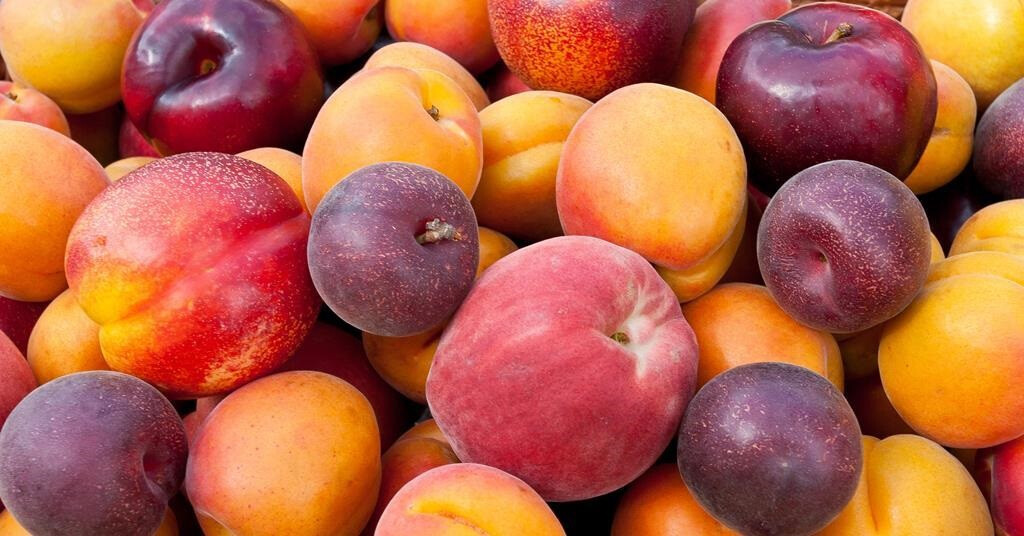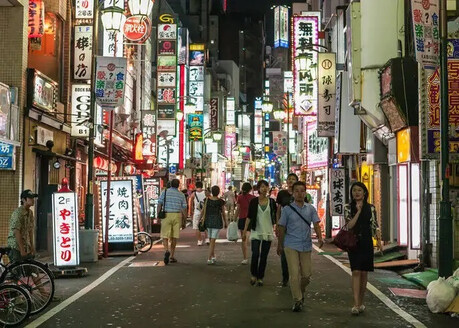
According to Senasa data, Argentina's fresh stone fruit exports totaled 4,803 tons in 2024/25, a 44% decrease compared to the previous year and 11% lower than the average of the last three years.
The unusual decline in exports this season (October to April) is analyzed to be mainly due to low yields and weakened price competitiveness in overseas markets.
Among the exported stone fruits, peaches accounted for the largest share, occupying approximately 60% of the total export volume. However, peach exports also amounted to only 2,805 tons, a sharp decrease of 46% compared to the previous year and 6% lower than the average of the last three years.
Initially, this season's peach production was expected to reach 110,000 tons, but adverse weather conditions led to a decline in quality, resulting in a significant amount being diverted for processing. The majority of Argentina's peach harvest is used for industrial purposes such as canning, with only a portion sold domestically and a small amount exported.
Plum exports also showed a similar trend, decreasing by 33% year-on-year to 1,237 tons. Argentina has approximately 11,000 hectares of plum cultivation area, with the main production regions being Mendoza, San Juan, and Río Negro provinces. Most of the harvested plums are sold as dried plums or used for processing, with only premium varieties mainly exported to Brazil, which accounts for 80% of Argentina's plum exports.
Meanwhile, nectarine exports plummeted by 54% to 761 tons, compared to a total production of approximately 7,000 tons. Like peaches, the majority of nectarine production is sold domestically or processed.
Overall, the Argentinean stone fruit industry is facing a double whammy of reduced production due to climate change and weakened competitiveness in the international market, necessitating the urgent development of countermeasures.
The sluggishness of Argentina's stone fruit exports appears to be the result of several complex factors beyond just reduced production and weakened price competitiveness.
Intensifying Impact of Climate Change:
In recent years, Argentina has frequently experienced unpredictable weather events such as abnormal temperatures, frost, and hail. These climate changes negatively affect the flowering period and growing environment of stone fruits, leading not only to reduced yields but also to a decline in fruit quality. In particular, the unusual low temperatures during the flowering period and frequent rainfall during the growing season in 2024/25 are analyzed to have exacerbated quality issues, further lowering the proportion of exportable goods.
Logistics and Infrastructure Issues:
Argentina's poor logistics environment and inadequate infrastructure are major factors weakening the export competitiveness of fresh agricultural products. Difficulties in maintaining freshness during long-distance transportation, high transportation costs, and inefficient port facilities all contribute to increasing export prices and reducing price competitiveness in overseas markets. Especially for perishable items like stone fruits, these logistics and infrastructure problems act as even more significant constraints.
Exchange Rate Fluctuations and Economic Instability:
Argentina's persistent economic instability, high inflation, and volatile exchange rates negatively impact the export competitiveness of the agricultural sector. Rising production costs and increased uncertainty in export earnings dampen farmers' willingness to export and create difficulties in negotiating contract terms with overseas buyers. In particular, the depreciation of the Argentine Peso in recent years has contributed to higher export prices, further weakening price competitiveness in the international market.
Changes in Major Export Markets:
Changes in the economic situation of Brazil, Argentina's main stone fruit export market, and moves to strengthen import regulations may also have contributed to the decline in exports. Slower economic growth in Brazil could lead to a decrease in import demand, and new import regulations or stricter quarantine measures could raise barriers to the export of Argentinean stone fruits. Furthermore, the active market penetration of competing countries such as Chile and Spain may also have affected Argentina's market share.
Lack of Variety Diversity and Insufficient Quality Management:
The Argentinean stone fruit industry is also criticized for its high dependence on specific varieties and the insufficient development and dissemination of new varieties preferred in the international market. Additionally, deficiencies in quality management systems during the production process undermine the consistency of export goods, which can lead to a decline in the trust of overseas buyers. Establishing production and management systems that meet international quality standards is an urgent task.
In conclusion, the sharp decline in Argentina's stone fruit exports can be seen as the result of a combination of various factors, including climate change, logistics and infrastructure issues, economic instability, changes in major export markets, lack of variety diversity, and insufficient quality management.
For the sustainable growth of the Argentinean stone fruit industry, active efforts and investment from the government and related industries are necessary to address these problems. This will include strengthening resilience to climate change, improving logistics infrastructure, promoting stable economic policies, diversifying export markets, developing and disseminating high-quality varieties, and establishing thorough quality management systems.
[Copyright (c) Global Economic Times. All Rights Reserved.]






























